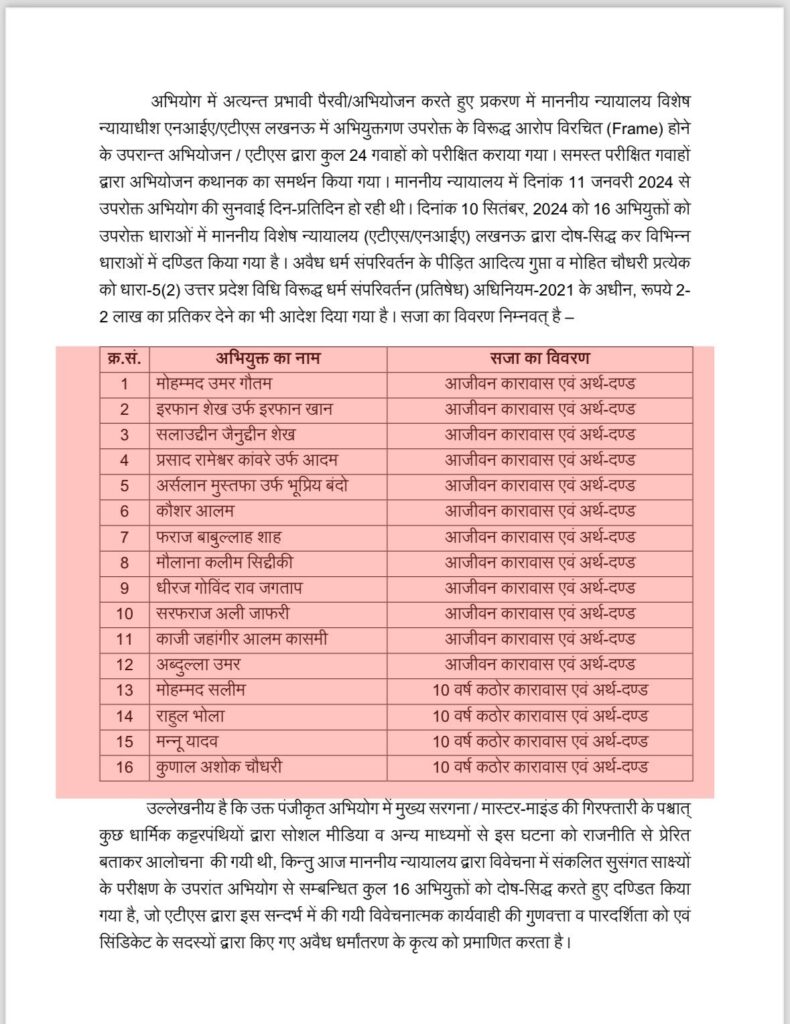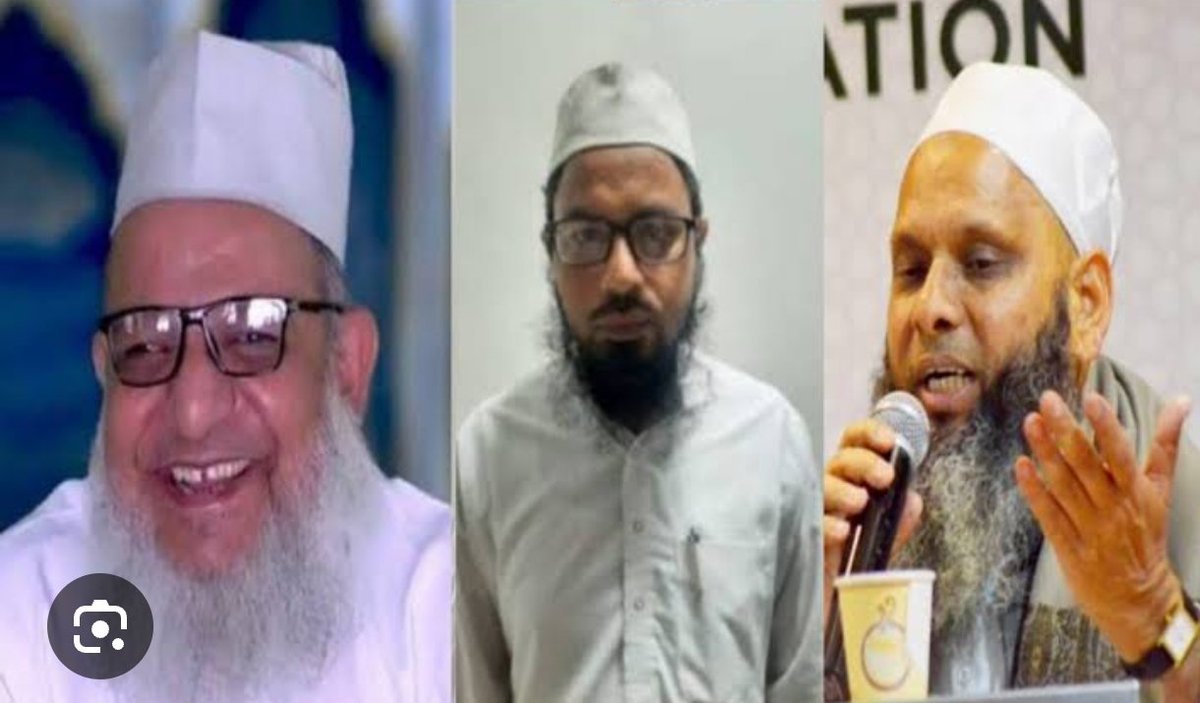Lucknow, India – In a significant legal verdict, a special NIA-Anti-Terrorist Squad (ATS) court in Lucknow has sentenced 12 individuals, including prominent Islamic figures Maulana Kalim Siddiqui and Mohammed Umar Gautam, to life imprisonment for orchestrating what has been described as a nationwide illegal religious conversion racket.
The case, which has drawn considerable attention, marks a pivotal moment in the discourse on religious conversions in India. The accused, found guilty under various sections of the Indian Penal Code including conspiracy against the state, were involved in converting individuals, particularly those from economically weaker sections and those with hearing disabilities, to Islam. This operation was supported by foreign funding, with suspicions pointing towards involvement from Pakistan’s intelligence agency, the ISI.
Maulana Umar Gautam, who himself converted from Hinduism to Islam, was reported to have boasted during interrogations of converting over 1,000 individuals, using tactics like marriage, money, and job promises. This revelation has sparked a debate on the ethics of conversion practices and the legal frameworks surrounding them.
The court, presided over by Judge Vivekanand Sharan Tripathi, also handed down a 10-year sentence to four other accomplices. The life sentences were delivered under IPC section 121A, which pertains to conspiracy to commit offenses against the state. This harsh sentencing reflects the court’s view on the severity of the crime, not just as a religious issue but as a threat to national security.

Public in general views this as a victory against forced conversions, considering the pain they have suffered due the centuries-old practice of Muslims converting Hindus through violence including rapes; while some particularly within the Muslim community, view it as an infringement on religious freedoms. Legal experts suggest that this case might set a precedent for how religious conversion cases are handled in India, potentially leading to stricter enforcement of laws like the Uttar Pradesh Prohibition of Unlawful Religious Conversion of Religion Act, 2021.
Critics argue that such laws might be used to target minority communities, while supporters believe they protect vulnerable individuals from coercion. The case has also reignited discussions on the balance between freedom of religion and the state’s role in preventing misuse of religious conversions for ulterior motives leading to demographic erosion of local culture and religion.
As India grapples with its identity as an ideal homeland for “Hinduism – the most peaceful global minority religion” , this verdict might influence future policies and legal interpretations concerning religious practices like forced conversions. This landmark case not only underscores the complexities of religious conversions in a diverse country like India but also highlights the ongoing legal and social challenges in managing religious harmony and individual rights.



